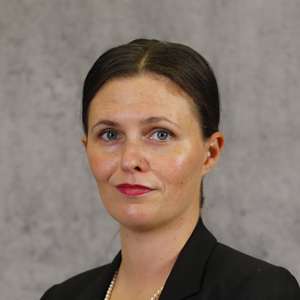
Saskia Stucki
@Saskia_Stucki
About/Bio
Dr. Saskia Stucki is a senior lecturer and researcher at the Zürich University of Applied Sciences and University of Zürich. Previously, she was senior research fellow at the Max Planck Institute for Comparative Public Law and International Law and a visiting scholar at Harvard Law School. She studied law at the University of Basel, where she also received her PhD with a multi-award-winning dissertation on fundamental animal rights. Her research interests include animal law and rights, theories of rights and human rights, environmental and climate law, One Health and food governance.
Recently Published
Emerging Animal Rights and Their Anthropo-, Zoo- and Ecocentric Justifications
April 23, 2025
Saskia Stucki
Editor’s note: This post is part of the EJIL:Talk! Symposium on 'Expanding Human Rights Protection to Non-Human Subjects? African, Inter-American and European Perspectives.' The idea of expanding the normative framework of human rights to nonhuman entities is not quite new, but ever-so topical in the age of AI, corporate human rights, and the rise of…
The Heidelberg Declaration on Transforming Global Meat Governance
Meat is at the center of interrelated environmental and public health crises: climate change, biodiversity loss, deforestation, pandemics, food insecurity, unhealthy and unsustainable diets, and institutionalized animal suffering. While eating or not eating meat has traditionally been seen as a private choice, it is increasingly becoming a public and political issue, as the social, ecological, and ethical costs…
World Lawyers’ Pledge on Climate Action: An Urgent Call for Climate Mainstreaming
The world is facing climate emergency, one of a series of overlapping and mutually reinforcing environmental crises. In 2017, more than 15,000 scientists from 184 countries signed the World Scientists’ Warning to Humanity, urging the world to take immediate action against the current trajectory of catastrophic climate change. We, as concerned lawyers, have heard the world…
- Page 1 of 2
- Last
Popular articles by Saskia Stucki
The Elephant in the (Court)Room: Interdependence of Human and Animal Rights in the Anthropocene
On 21 May 2020, the Islamabad High Court issued a remarkable judgment in the case of Kaavan the elephant (among other “inmates” [8] of the Marghazar Zoo), affirming “without any hesitation” that “animals have legal rights” [59]. Chief Justice Athar Minallah held that the “pain and suffering of Kaavan must come to an end”, and ordered his…
World Lawyers’ Pledge on Climate Action: An Urgent Call for Climate Mainstreaming
The world is facing climate emergency, one of a series of overlapping and mutually reinforcing environmental crises. In 2017, more than 15,000 scientists from 184 countries signed the World Scientists’ Warning to Humanity, urging the world to take immediate action against the current trajectory of catastrophic climate change. We, as concerned lawyers, have heard the world…
The Heidelberg Declaration on Transforming Global Meat Governance
Meat is at the center of interrelated environmental and public health crises: climate change, biodiversity loss, deforestation, pandemics, food insecurity, unhealthy and unsustainable diets, and institutionalized animal suffering. While eating or not eating meat has traditionally been seen as a private choice, it is increasingly becoming a public and political issue, as the social, ecological, and ethical costs…